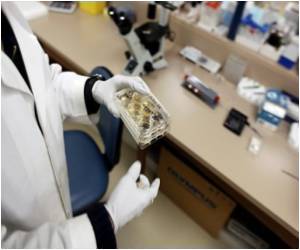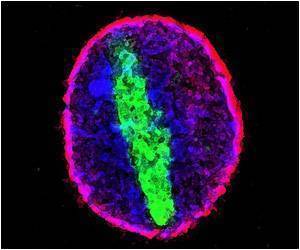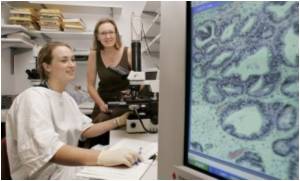
The new study shows that normal mammary epithelial cells, as they are developing, secrete interleukin 25, a protein known for its role in the immune system's response to inflammation, for the express purpose of killing nearby breast cancer cells.
"We found that normal breast cells provide an innate defense mechanism against cancer by producing interleukin 25 (IL25) to actively and specifically kill breast cancer cells," breast cancer authority Mina Bissell, of Berkeley Lab's Life Sciences Division, who led this research, said.
"This suggests that IL25 receptor signalling may provide a new therapeutic target for the treatment of breast cancer," she said.
Co-authoring the paper with Bissell were Saori Furuta, Yung-Ming Jeng, Longen Zhou, Lan Huang, Irene Kuhn and Wen-Hwa Lee, of the University of California, Irvine, who along with Bissell is a corresponding author.
It is not as if mutant cells are not being generated, Furuta, lead author of the Science Translational Medicine paper and a Berkeley Lab colleague of Bissell's, explained.
Advertisement
"A number of tumour surveillance mechanisms have been described in the past, including the classic molecular tumour suppressors, immune surveillance, and suppression by the extracellular matrix and other microenvironmental factors.
Advertisement
In their study, Furuta, Bissell, Lee and their colleagues found that whereas IL25 was highly toxic to breast cancer cells, it did not harm normal breast cells.
The selectivity, they discovered, is due to the presence of an abundance of exposed IL25 receptors on breast cancer cells. These IL25 receptors were absent on normal breast cells.
"Since IL25 is produced by healthy breast tissue as a natural defense mechanism against cancer during the cell differentiation process, we should be able to utilize IL25/IL25 receptor signalling as an organic approach to breast cancer therapy," Furuta said.
Normal epithelial cells, in cooperation with the microenvironment that surrounds them, actively help maintain the health and integrity of tissue.
They do this in part by regulating the secretion of cell signalling factors - both autocrine and paracrine - that promote the development of healthy organs and prevent the aberrant growth of neighbouring cells.
In previous studies, Furuta and collaborators have shown that conditioned-medium, taken from normal mammary epithelial cells while in the process of forming acini in a 3D lamin-rich extracellular matrix culture, can "revert" the malignant phenotype of breast cancer cells so that they behave as if they were normal breast cells.
Similar results were also achieved with certain cell signalling inhibitors.
"These observation suggested that acinus-forming nonmalignant mammary epithelial cells secrete factors that can suppress the phenotype of breast cancer cells growing in 3D cultures," Bissell said.
"We hypothesized that such a complex phenotypical reversion is likely the result of multiple signalling factors that in combination allow cancer cells to form quiescent acinar-like structures.
"We sought to identify and characterize these factors using solubility and size-fractionation of the conditioned medium from normal mammary epithelial cells, along with functional assays to identify the active molecules," she stated.
The findings have been reported in the journal Science Translational Medicine in a paper titled 'IL25 Causes Apoptosis of IL25R-expressing Breast Cancer Cells Without Toxicity to Nonmalignant Cells'.
Source-ANI















